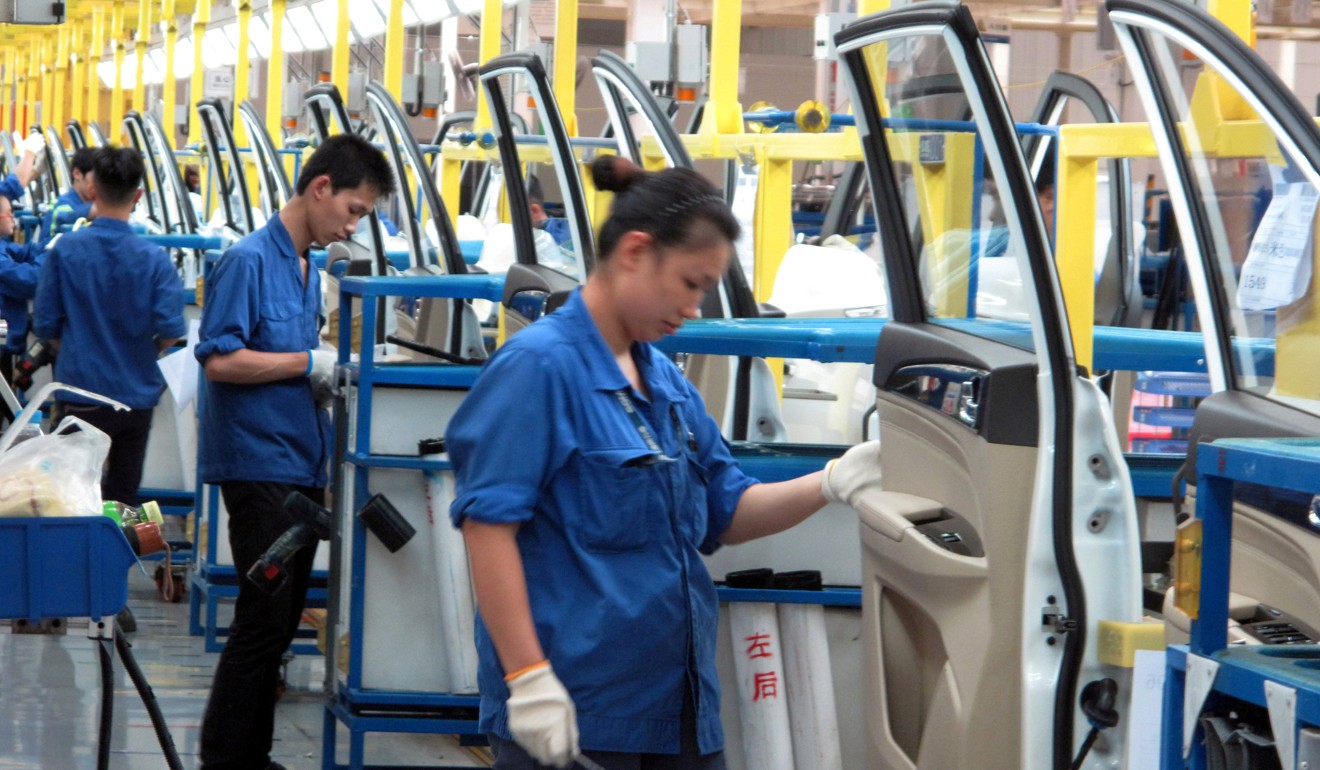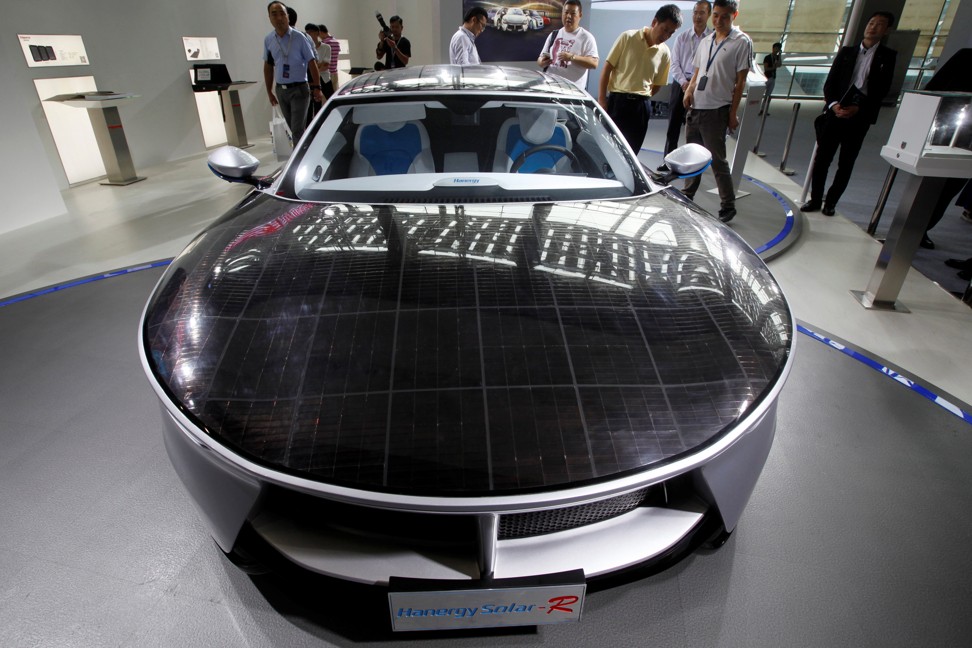Jane Cai
 Other areas include smart cars, robotics, advanced shipbuilding and maritime equipment, modern agricultural machinery, advanced medical devices and drugs, new materials, smart manufacturing and machine tools. The aim is “to make China a powerful manufacturing country” and upgrade the nation’s industrial power through “the internet, big data and artificial intelligence”, the commission said. To achieve that goal, the agency has laid out specific targets to develop key technologies and guide research and the flow of funds in each sector.
Other areas include smart cars, robotics, advanced shipbuilding and maritime equipment, modern agricultural machinery, advanced medical devices and drugs, new materials, smart manufacturing and machine tools. The aim is “to make China a powerful manufacturing country” and upgrade the nation’s industrial power through “the internet, big data and artificial intelligence”, the commission said. To achieve that goal, the agency has laid out specific targets to develop key technologies and guide research and the flow of funds in each sector.
Details for the automobile sector include encouraging greater use of computer chips by China’s big carmakers.
The commission also wants Chinese carmakers to develop hi-tech equipment such as high-definition cameras and precise electronic systems to warn drivers if they are in danger of collisions.
The government will coordinate research efforts by carmakers and “enhance funding support” to seek breakthroughs in technological research, the agency said.
Similar instructions and plans have been set out for the other eight industrial sectors.
The plans were published as China’s state-led industrial policies are receiving increased scrutiny among the country’s trade partners in the US and Europe.
The European Union introduced new rules last week to guard against excessively cheap imports where overseas manufacturers are alleged to have gained an advantage through unfair trade practices.
It singled out China for special attention in a report spelling out how its economy is distorted by government subsidies and preferential policies for state manufacturers.
The European Commission concluded in a 465-page report that Beijing exerts a decisive influence over the allocation of resources, such as land or capital, and influences prices in various factors of production “in a very significant manner”.

While the plans released on Tuesday are not specifically targeting foreign competitors, the message is about growing China’s industrial muscle that can be leveraged by Beijing.
In the rail sector, for instance, Beijing’s plan to develop a home-grown 600km/h maglev train would put China at the top of the world’s rail industry in the use of the technology. A current line operating in Shanghai has an average speed of about 200km/h. The highest speed recorded by the technology is about 400km/h.
Zhao Jian, an economics professor at Beijing Jiaotong University said: “China is competing with the US to renovate its manufacturing sector. Government support in developing generic technologies are needed, but it should avoid being overstretching and setting up unrealistic goals.
“I doubt if any company would be interested in marketing the maglev train technology as the cost would be huge,” he said.
The goals may be overly ambitious, but China’s government is committed to pool resources to try to achieve them, according to analysts.
John Zeng, managing director of the consultancy LMC Automotive in Shanghai, expects the plans to be followed by preferential tax rates and other policies to encourage investment in the various sectors.
He added, however, that he was concerned it may be “ahead of time” to develop smart car technologies in China. “Compared to the US and some European countries, China’s challenges to promote smart cars are much bigger, given the poor traffic conditions.”
There is also a debate over whether the state should decide what technologies to focus on rather than market forces.
Beijing’s industrial policies have often led to costly distortions. The Chinese government announcement a decade ago of 10 strategic emerging industries led to overheated investment and overcapacity in some sectors such as solar power.
Gary Liu, president of the China Financial Reform Institute, a Shanghai-based research group, said the government economic planner’s role should be curtailed.
“What China should do is reduce government approvals. Enhancing administrative intervention will only lead to corruption, rent-seeking and disruption to the market,” he said.
Barely a decade after the global financial crisis, China is on track to becoming a global leader in electric and driverless cars and the development of artificial intelligence.
However, the success can mainly be attributed to private companies’ efforts. China’s industrial policies, from subsidising solar panel producers to new energy car makers, have not fostered many successful firms. Instead, reports of fraudulent subsidy claims have been rampant.
Hu Xingdou, an independent economist, said: “Industry policies, even if working well, only work for the short-term. For the longer term, China is losing credit by allowing administrative power to play a big role in the economy and is destined to generate more complaints on an uneven playing field and criticism from foreign countries.”
This article appeared in the South China Morning Post print edition as: Mainland plans to lead nine hi-tech sectors by 2020

No comments:
Post a Comment